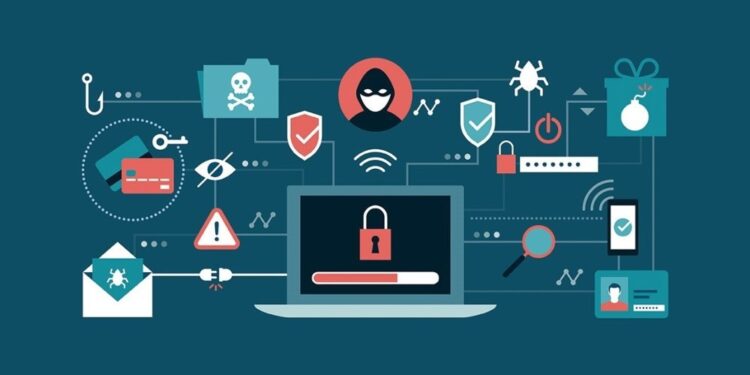Protecting the security of your online accounts is more important than ever. From your bank account to your social media accounts, keeping your information secure is essential. With cybercriminals becoming ever more sophisticated, it’s important to understand how to properly secure your online accounts and protect yourself from potential threats. In this article, we will discuss the different ways you can safeguard your online accounts and stay safe in the digital world.
What can you do to protect your online account?
Many companies have implemented security features to secure user accounts. Two-factor authentication is a solution where users need not only a username and password but also verify their identity with a code sent to their phone. This ensures that even if someone guesses or steals your password, they will still be unable to log into your account without access to your phone. Assuming you are referring to your online account with a specific company:
- Choose a unique username and password that you haven’t used for any other accounts.
- Don’t use easily guessed words like your birthday, mother’s maiden name, or pet’s name.
- Create a password with at least eight characters.
- Make use of both capital and lowercase characters, numbers, and symbols.
- Change your password periodically.
- Don’t write down your passwords or store them in a file on your computer.
- Be cautious of phishing emails that try to trick you into revealing your password.
- Change your password right away if you believe your account may have been compromised.
How to secure your online accounts?
When it comes to online security, there are a few key things you can do to protect your accounts.
- Use a strong password for each of your online accounts. that is at least eight characters long and contains a mixture of uppercase and lowercase letters, numbers, and symbols. Never make several accounts use the same password.
- Enable two-factor authentication (2FA) whenever possible. By forcing you to input a code from your mobile phone in addition to your password when signing in, 2FA adds an extra degree of security to your account. This makes it very difficult for anyone to hack your account, even if they have your password. Plus you can also use high-speed VPN services for more safety and security.
- Be careful about the information you share online. Don’t post personal information like your home address or date of birth on social media sites. And be careful about clicking links in emails or online advertisements, as these can often turn out to be malicious websites that can infect your computer with malware or steal your personal information.
Benefits of securing your online accounts?
There are many benefits to securing your online accounts. By doing so, you can help protect yourself from identity theft, fraud, and other cyber crimes. Additionally, secured accounts are generally more difficult for hackers to access, which can help keep your personal information and data safe. Here are some additional benefits of securing your online accounts:
- You can help protect your financial information and account details from being stolen or accessed by unauthorized individuals.
- You can safeguard your personal data and information, such as your address, phone number, email address, and social media profiles.
- You can reduce the chances of having your identity stolen or becoming a victim of identity theft.
- You can deter hackers and cyber criminals from gaining access to your accounts.
- You can protect yourself from phishing scams and other types of fraud.
Types of cyber attacks
There are many different types of cyber attacks, but they can broadly be classified into two categories: those that target individuals and those that target organizations.
- Individuals can be targeted with phishing emails that try to trick them into revealing personal information or downloading malicious software. They may also be the victims of identity theft, where criminals use their personal information to commit fraud.
- Organizations can be targeted by hackers who want to steal sensitive data or disrupt operations. They may also be attacked by ransomware, which encrypts their data and demands a ransom for the decryption key.
Strategies for improving online security
There are a number of strategies you can use to improve the security of your online accounts.
1. Use strong passwords
When creating passwords for your online accounts, make sure to use strong, unique passwords that are not easy to guess. Avoid using terms or details about yourself as your passwords that are simple to guess. You can use a password manager to help generate and keep track of strong passwords.
2. Enable Two-Factor Authentication (2FA)
Two-factor authentication adds an extra layer of security to your online accounts by requiring you to provide two pieces of evidence when logging in – typically something you know (like a password) and something you have (like a code sent to your phone). This makes it much harder for someone to gain access to your account, even if they have your password. Many online services now offer 2FA, so be sure to enable it where available.
3. Keep your software up-to-date
One way that hackers can gain access to your online accounts is by exploiting vulnerabilities in outdated software. Therefore, it’s important to keep all the software on your devices – including your web browser, operating system, and any plugins or extensions – up-to-date with the latest security patches. Most software can be set to update automatically, so this is usually just a matter of making sure that auto-updates are enabled.
What are the ways to keep yourself safe online?
In the digital age, there are numerous threats to our online safety, from cybercrime and identity theft to malware and data breaches. As such, it is essential that we take steps to ensure our security in an increasingly connected world. One of the most effective ways to protect ourselves is through the use of a virtual private network (VPN). It encrypts data traveling to and from your laptop or phone, and hooks you up to a secure server.
Also, be careful what you click on. Phishing emails are a common way for hackers to try to gain access to your online accounts. These emails look like they’re from a legitimate company but contain links that lead to malicious websites designed to steal your login information. Be careful of any email that asks you to click on a link or download an attachment, even if it looks like it’s from a trusted source.
Conclusion
Securing your online accounts is essential to protect yourself from hackers and prevent unauthorized access. With the right tips and strategies, you can easily protect your accounts from malicious activities. Use strong passwords, enable two-factor authentication, use a password manager, or ensure that other methods of account protection are in place. Doing so will help keep the data stored on these accounts secure while ensuring that you maintain control over them at all times.















